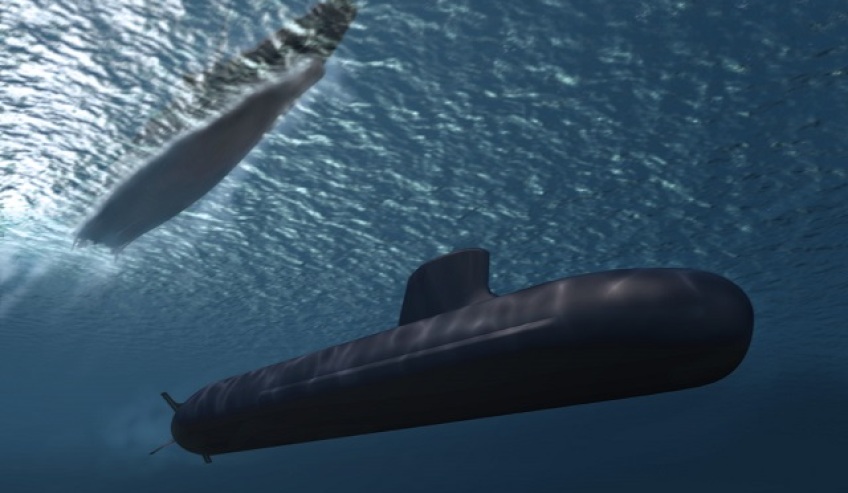Thales has announced it will be sponsoring a PhD at the University of South Australia (UniSA) to examine artificial intelligence and its role in the future of anti-submarine warfare.
The program is a joint UK-Australia initiative and aims to utilise AI within maritime combat systems in support of human operators. Thales plans to use the results from the research to integrate into their high-performance sonar solutions.
"We have been working closely with the UK in the area of sensor development for sonar arrays for over 10 years," Thales Australia CEO Chris Jenkins said.
"This collaboration between Thales and UniSA will extend our collaboration into inboard systems."
The research has the potential to be extremely beneficial to the Royal Australian Navy, with Thales also providing the sonar systems for SEA 5000.
It also further strengthens Australia's Anti-Submarine Warfare Strategic Partnership with the UK, which was highlighted earlier this year with Australia-UK ministerial meetings in Edinburgh as well as the selection of a UK design for Australia's Hunter Class frigates.
Thales also provides the sonar systems for RAN's Anzac Class frigates.
CEO of Thales in the UK, Victor Chavez, said the research could indeed be implemented in RAN's upcoming platform and maritime combat system procurements.
"I’m delighted to extend our joint work with Australia in this critical area," Chavez said.
"We rely on strong academic partnerships to ensure we stay at the forefront of this technology in the UK, and we recognise the leading contribution that the University of South Australia’s Behaviour Brain Body Research Centre can bring to both our nations’ anti-submarine warfare solutions."
UniSA vice chancellor Professor David Lloyd said the university is delighted to be providing the PhD.
"UniSA’s Behaviour Brain Body Research Centre has developed partnerships over many years across a range of industries including aviation, long-haul transport and defence sectors to study fatigue and human performance," Professor Lloyd said.
"As defence and other industries increasingly integrate AI systems, expert research from the centre will help to inform how people work best in these new environments, optimising operational performance and ensuring worker wellbeing."
The French company says the goal of the PhD is to "to find ways to ensure that as increased levels of autonomy and automation are introduced into service the operator remains central in the maritime mission system".
With Australia's maritime environment becoming more congested, advanced AI will be used to help human operators during periods of sleep loss and fatigue.
More than half of the world's submarines are expected to be operating within the region in the coming decades, and the ability to support maritime operators will be more important than ever.
Research into advanced AI to support operators is just another example of anti-submarine strategy being employed by the RAN. SEA 1000 and SEA 5000 are being implemented with anti-sub activity considered the primary functions of the projects.
SEA 1000 will see 12 'regionally superior' submarines enter service in the early 2030s, costing an estimated $50 billion dollars, although that figure has been questioned and could raise by $30 billion dollars.
SEA 5000 is the planned introduction of 12 of the 'most advanced anti-submarine warships in the world', the Hunter Class frigates, which will begin entering service in the late 2020s.


